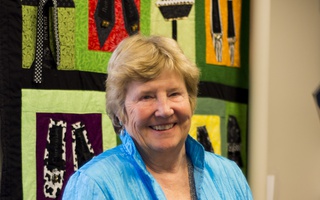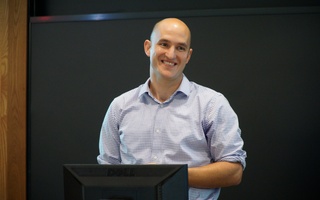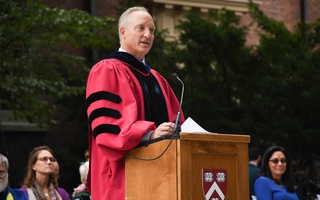The tables in House dining halls have recently sprouted some interesting publications. One of the pop-up flyers promoting Harvard’s latest “inclusion” report reads, “With extraordinary education comes great responsibility.” The cheesy, quasi-Spider-Man cliché aside, I find this statement reflective of a very interesting and very concerning trend at the College.
I absolutely believe that Harvard offers something of an extraordinary education, but I am not convinced that all is as well as it seems in our classroom education. I firmly believe education is far more holistic than classroom and book knowledge, and that our educational experience is influenced by far more than studying. Yet I cannot help but wonder if we have become so enamored with “experiences” outside the classroom that we have neglected the very foundations of the liberal arts education for which we supposedly came to Harvard.
I see and hear many passionate voices clamoring for spaces of “belonging” and inclusion, read rigorous (though often nonsensical) debate over how we ought to manage extracurricular groups, and encounter vocal activism for every cause under the sun. Harvard students care deeply about a broad variety of issues with various levels of salience and relevance, but on perhaps the single issue that every undergraduate experiences with great consequence for our education, we are hauntingly silent.
This issue is the General Education system. Why we are not so invigorated to hold Harvard accountable for its failure to build a functional General Education system and support the liberal arts education on which it stakes its undergraduate reputation? Let me be clear: I do not believe those other activist endeavors I mentioned above are intrinsically bad, but I believe the assumption underpinning the pursuit of other agendas, that our education is simply extraordinary in its current state, is not always a given.
Other students have written incredibly compelling pieces about the shortcomings and flaws of the General Education system. One observation in particular—that the Gen Ed system simply does not seem to be a priority for the administration—should be very troubling to the undergraduate community.
But while Harvard itself has admitted that one iteration of its General Education curriculum was “failing on a variety of fronts” and has since seemed to struggle mightily to replace it, I believe there is someone else who is to blame for this educational equivocation: us.
We also must hold ourselves accountable for our own education. As one of the authors of the General Education pieces once remarked to me over a meal, “The keys to a liberal arts education exist at Harvard. They’re just very hard to find.” Far too often, my peers and I find ourselves pouring through my.harvard to find those “gem” Gen Eds that entail the fewest deliverables and fewest class hours, with no regard for what we may or may not learn. I watch my peers more or less brag about how much class they’ve missed and how many lecture videos they’re behind in and how many pages they wrote in so few hours.
What we show up to reflects what’s important to us, and I’m deeply concerned that our Harvard education is not always as important to us as we like to claim. Do we want an education, or do we want a degree? Do we want to be transformed by the renewing of our minds or do we just want to pass? Don’t get me wrong, I know that committing 100 percent to each class every semester is next to impossible.
But we are cheating ourselves out of the richness of what Harvard can and does offer if we are only concerned with fulfilling requirements. Harvard could maybe make this easier by dedicating the massive task force resources it spent on changing a single “non-inclusive” song lyric to making its General Education system robust and worthwhile. We have to meet Harvard halfway for that to work.
I readily admit that there are big questions at stake for the future of the liberal arts in universities all over the world. It isn’t an unfounded claim that the traditional liberal arts education might not be adequately preparing college students for the demands of a 21st century digital labor force, or that scarce dollars might be better spent acquiring technical skills in a vocational or trade school.
I think those claims often miss the point of a liberal arts education, but that might be a column for another week. Most importantly, Harvard must not only meaningfully ask and engage those questions, but we also must ask ourselves why we wanted this kind of education in the first place and whether or not we actually want to pursue it with any dedication or rigor.
Grace M. Chao ’19 is an Economics concentrator in Mather House. Her column appears on alternate Wednesdays.
Read more in Opinion
Is Personal Accountability a Thing of the Past?Recommended Articles
-
Making Diversity MeaningfulBut as Harvard (to its great credit) becomes more inclusive and diverse, more students need a leg up when they arrive. By the same token, the better-off, better prepared students would do well to spend more time directly engaging with students who are truly different from them.
-
 Katherine Merseth
Katherine Merseth -
 Ed School Kicks Off Public Lecture Series
Ed School Kicks Off Public Lecture Series -
 Gen Ed Administrators Say More Time Needed for Program
Gen Ed Administrators Say More Time Needed for Program -
 Smith to Develop Gen. Ed. Courses with Faculty
Smith to Develop Gen. Ed. Courses with Faculty













